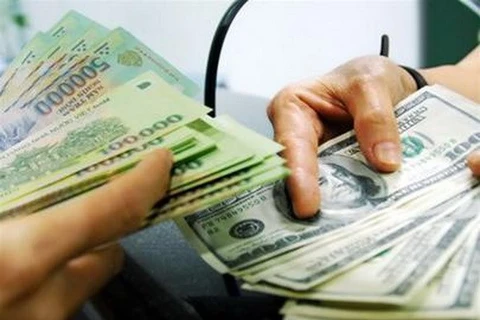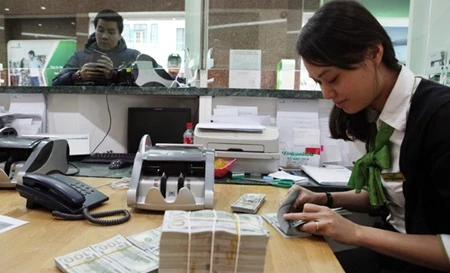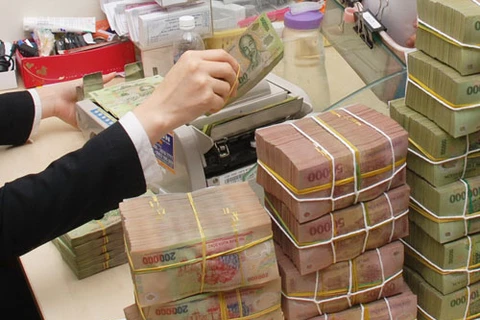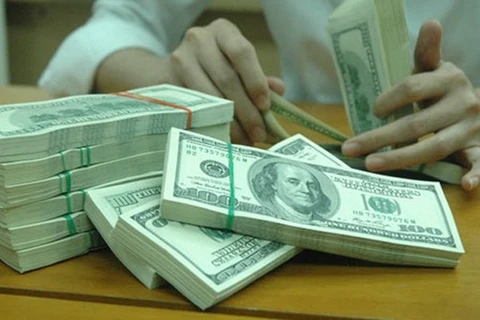Hanoi (VNA) – The foreign exchange market is still vulnerable to latent exogenous risks, especially crisis risks arising from emerging markets, said the Vietnam Institute for Economic and Policy Research (VEPR).
Under an annual report released by VEPR on May 10, t he US Federal Reserve's decision to increase its interest rate will make the US dollar stronger, placing pressures on the domestic foreign exchange rate.
Assessing the forex rate policy in recent time, economic experts said the State Bank of Vietnam (SBV)’s application of the central rate for the Vietnam dong against the US dollar helps stablise the exchange rate during the last five months.
However, they also noted that there are great pressures on the exchange rate as the US dollar is forecast to continue strengthening thanks to the US’s economic recovery and FED’s plan to lift its interest rate, and China’s decision to renovate its exchange rate policy.
According to the report, Vietnam’s economy saw satisfactory signals, especially in the last two years, as investment flows to the country are on the rise after the Trans-Pacific Partnership (TPP) Agreement was officially signed.
Strong growth of the industrial production and the recovery of real estate market are attributed to the recovery, the report said, noting that the tendency is forecast to remain during the year.
Economic experts also mentioned the weakness of the banking system - the foundation of the national economy, saying bad debts are creating potential risks for the system.
VEPR Director Nguyen Duc Thanh voiced that Vietnam finds it difficult to realise its set growth target in 2016 and eventually cannot exceed the existing growth rate of 6.5 percent.
The country is likely to cope with a higher inflation rate due to the loosened monetary policy and the adjustment of goods and public service prices, he added.-VNA
























